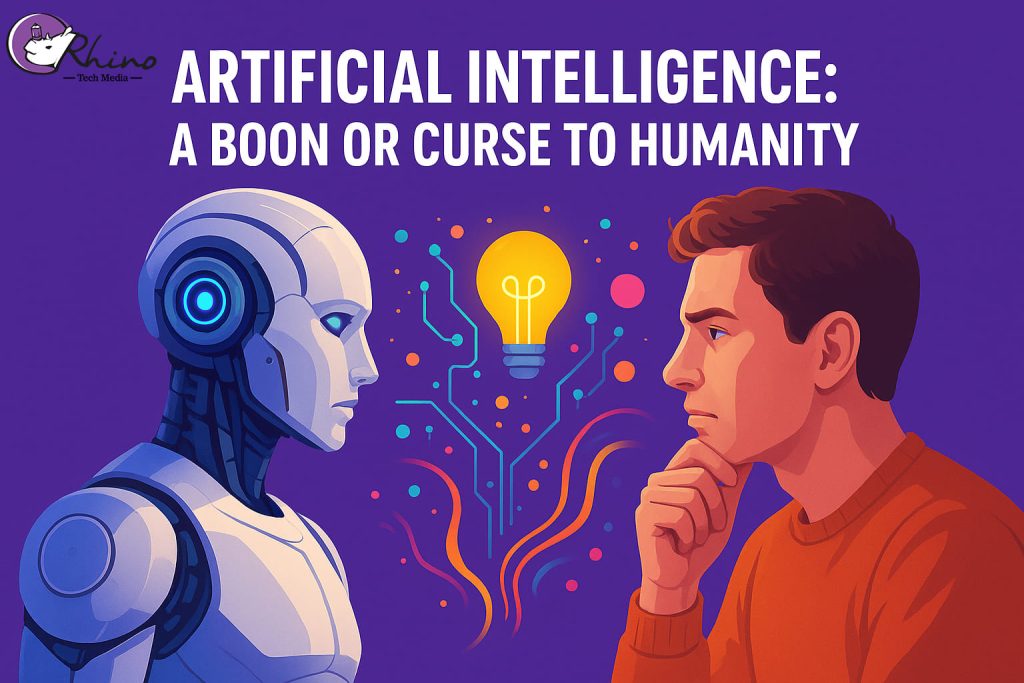Introduction
Artificial Intelligence (AI) has emerged as one of the most transformative technologies of the 21st century. From self-driving cars to personalized healthcare, AI is reshaping industries, economies, and everyday life. While some view it as a revolutionary tool that can solve global challenges, others fear it could lead to job displacement, ethical dilemmas, and even loss of human control. The debate on whether AI is a boon or a curse to humankind remains ongoing and complex.
AI as a Boon
One of the greatest advantages of AI is its ability to enhance human efficiency and productivity. Machines can process vast amounts of data far faster than humans, leading to breakthroughs in medicine, engineering, and science. For example, AI-driven diagnostics assist doctors in detecting diseases such as cancer at early stages, potentially saving millions of lives.
AI also contributes to global problem-solving. Climate modeling, disaster management, and sustainable energy development have all benefited from AI’s predictive capabilities. Moreover, in everyday life, AI powers virtual assistants, recommendation systems, and smart devices, making tasks simpler and more convenient.
Another significant boon is in safety and risk reduction. Robots and AI systems can perform dangerous tasks—such as space exploration, bomb disposal, or deep-sea mining—thus protecting human lives.
AI as a Curse
Despite its benefits, AI presents several challenges. The most pressing concern is job displacement. Automation threatens millions of jobs across industries such as manufacturing, transportation, and customer service, raising fears of mass unemployment and economic inequality.
Another major issue lies in ethical dilemmas. AI systems can inherit biases from their training data, leading to unfair or discriminatory outcomes in hiring, law enforcement, or financial services. Furthermore, the rise of AI surveillance raises concerns about privacy and individual freedoms.
Perhaps the most alarming fear is the loss of human control. As AI systems grow more advanced, questions arise about their autonomy and decision-making. Speculative scenarios of AI surpassing human intelligence—sometimes referred to as “superintelligence”—highlight risks of misuse, unintended consequences, and even existential threats.
Balancing the Scales
The reality is that AI, like any powerful tool, is neither inherently a boon nor a curse. Its impact depends on how humanity develops, regulates, and applies it. Responsible innovation, ethical frameworks, and global cooperation are essential to ensure that AI serves human welfare rather than undermines it. Education and skill development will also play a crucial role in preparing societies for an AI-driven future.
Conclusion
Artificial Intelligence is both a promise and a peril. It holds the potential to revolutionize human progress, improve quality of life, and solve pressing global issues. At the same time, it presents risks that, if left unchecked, could exacerbate inequality, compromise ethics, and challenge human authority. Ultimately, whether AI becomes a boon or a curse to humankind rests in our collective hands—determined by the choices, policies, and values that guide its development and use.

